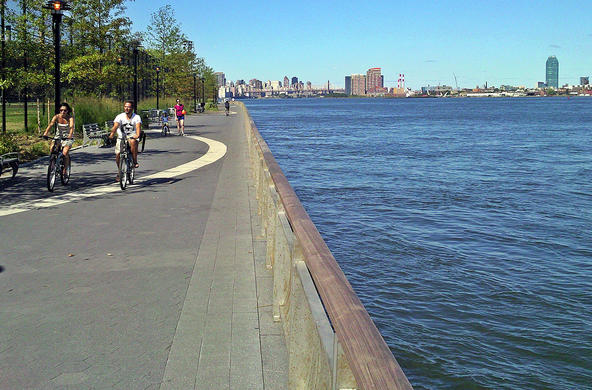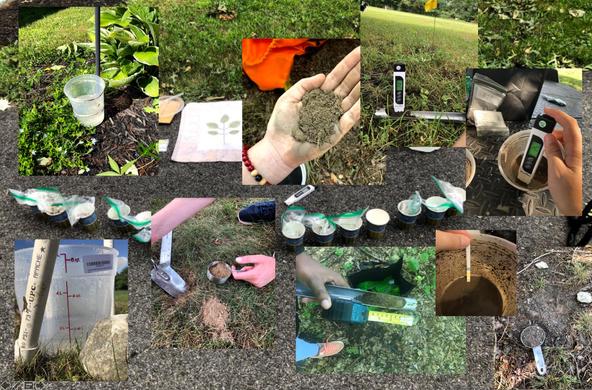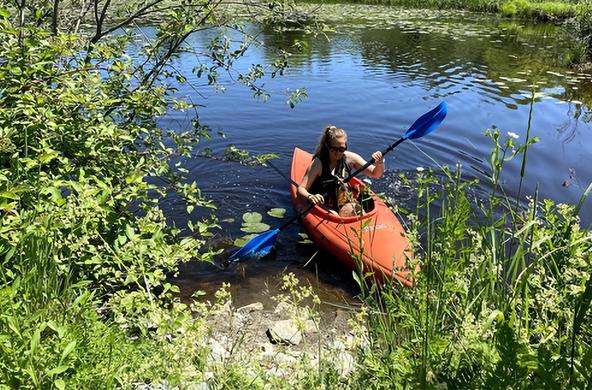My journey in the sciences has already taken a few loops and turns. I never imagined that I would not only find myself doing and loving environmental research – but also hoping to make a career of it.
I have always loved being around nature, but among my varied interests and hobbies, a career in environmental research never emerged as an obvious path. Even in high school, when I was aware of my interests in science and the environment, I decided to take physics instead of environmental sciences because I thought that physics would better prepare me for college.
When I reached college, I wasn’t sure what I wanted to do, but I repeatedly heard my older peers talk about research opportunities and internships. I became fascinated with these opportunities, but as a freshman, the idea of applying for a research internship was overwhelming because I felt like I didn’t have a wide enough skillset. However, I wrangled my self-confidence and applied for a few internships and research programs. When one came through, I was ecstatic.
My first glimpse into the world of research was with the Established Program to Stimulate Competitive Research (EPSCoR) in Burlington, Vermont doing stream research. It felt surreal to have that opportunity as a freshman.
Working as a summer intern was a challenging but rewarding experience. It helped me develop confidence in my professional self and my ability to work in this field. I attribute much of my positive experience to the amazing group of mentors that I got to work with for two summers in EPSCoR Vermont. Their trust, encouragement, and guidance helped me feel like I was working in an area that I belonged in. I felt motivated to keep working for it.

When I got back home, I did several things to keep my momentum going. I reached out to professors to do research with them and changed my major to Chemistry so I could pursue an Environmental Certification. This was an exciting moment in my life. I could see very clearly how my interests were shaping my future and the type of professional I aspired to be.
This summer, I am working on two projects as part of the Research Experiences for Undergraduates (REU) Program at Cary Institute. For my personal research project, I am looking at riparian zones along the Fallkill Creek, which runs through the city of Poughkeepsie. Riparian zones are the areas between a stream and dry land. The vegetation and soils in riparian zones act as filters, preventing pollutants from entering the stream when water passes through.
I am assessing water quality around these sites to better understand the role of riparian zones in buffering a stream from pollution. For this, I’ll be looking at nutrients and pollutants present in different parts of the Fallkill to try to identify a relationship between these indicators and surrounding land use. We think that sites surrounded by impervious surfaces like asphalt and cement will have greater nutrient concentrations than sites surrounded by pervious surfaces like mowed grass, shrubs, or trees. With this research, we hope to help guide future planning and development along the Fallkill.

With my second project, I am pursuing my passion for teaching. The Mid-Hudson Young Environmental Scientists (MH-YES) program aims to increase diversity in science by providing a group of high school students with the opportunity to carry out summer research with the guidance of a high school science teacher, a professional scientist mentor and – this is where I come in – an undergraduate student. Our team will be working on an issue focused on the Fallkill; the high school students are currently in the midst of finalizing their research questions. I’m thrilled and nervous to be mentoring a group of students, yet I know that it will be an amazing experience for all of us.
I still have a long way to go and numerous things to learn, but I know that my passion for the environment continues to grow. I can say with confidence that although I might not know where this path will lead me, it feels like the right place for me to be.
Amanda Jackson, a student at the University of Puerto Rico - Mayagüez Campus, is part of Cary Institute's 2019 Research Experiences for Undergraduates (REU) program.
This summer, Amanda is working with Cary scientist Stuart Findlay, with Cary educators Rhea Esposito and Sam Epstein, to study pollution in Poughkeepsie’s Falkill Creek. Amanda is also mentoring high school research students as part of the Mid-Hudson Young Environmental Scientists (MH-YES) program.





